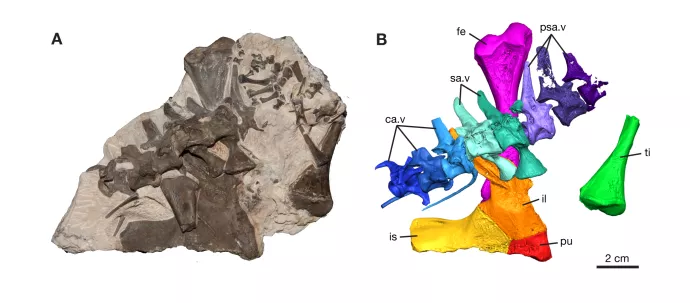
New specimens of the early Permian apex predator - Tea Maho, MSc
Please join us in congratulating Tea Maho, MSc, Reisz Lab, on their paper New specimens of the early Permian apex predator Varanops brevirostris at Richards Spur, Oklahoma, with histological information about its growth pattern published by Paleontology and Evolutionary Science
Tea completed her HBSc and MSc at UTM examining the dental development and replacement of early Permian vertebrates, compared to stem amniotes and extant reptiles. She is currently working as a research assistant for Reisz Lab and is pursing a PhD this coming fall.

This study provides additional information, including a new articulated pelvic region and various isolated vertebrae and limb bones, of the large varanopid Varanops brevirostris, recovered from the Richards Spur locality in Oklahoma. Available evidence indicates that it is indistinguishable from the genotype from the Cacops bonebed. The locality has been previously found to be populated mainly by two large dissorophoid predators, and fragmentary remains of the large sphenacodontid have been reported to also be present. Together with previous material tentatively assigned to Varanops, there are now multiple specimens (a minimum of seven individuals) of this taxon at the Richards Spur locality, including the five from the current study. Although appearing to be still somewhat less abundant than Cacops and Acheloma, this taxon does not appear to be as rare as previously thought. Incorporating neutron computed tomography of the articulated skeleton with histological analyses of isolated femora, we were able to show that the articulated specimen may have belonged to an adult individual with the presence of multiple annuli and lines of arrested growth, as well as the presence of an external fundamental system in the periphery of the cortex of the femora.
